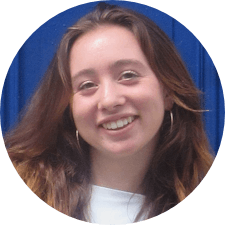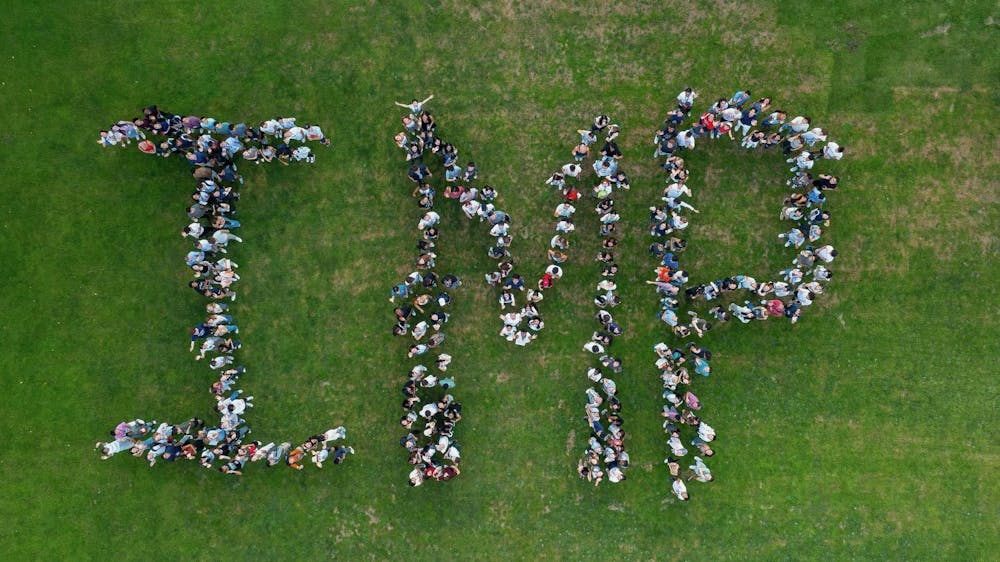Maithili Parekh ’02 started her “typical Brown career” in finance before tapping into journalism, the art world and eventually community-based social services. What gave her the communication and advocacy skills needed for all these paths, however, was starting the International Mentorship Program in 1999, she told The Herald.
Today, IMP is a robust program under the Global Brown Center, consisting of 26 mentors who help foster a community of 320 international students from 82 countries, The Herald previously reported. When Parekh founded the program, she recruited around 12 mentors to work with approximately 120 international students, she said.
“I was blown away by the growth the program has seen with every generation of international students,” Parekh said, recalling seeing IMP in full swing for its 25th-anniversary celebration. Parekh was the keynote speaker at this year’s Identity Conference, part of a new initiative led by GBC Assistant Director Ruby Cheng.
“We were able to take a deep dive on identity intersectionality and empower students to be unapologetically international,” Cheng said.
Parekh echoed this sentiment in her speech: “I urge you to continue to weave and create your own designs, forge and articulate your own identities while acknowledging that we begin to a larger whole.”
Parekh began her speech by reminiscing about her arrival at Brown: flying in from India, feeling jet-lagged and overwhelmed but excited. She recalled that her first few days were “as energizing as they were nerve-wracking.” Questions arose — of finding friends, roommate relations, people understanding her accent, belonging. She felt lost.
For Parekh, it was difficult adapting to things as big as understanding language and humor and as little as using a coin-laundry machine. She completed her first load of laundry with her roommate from California.
Over her first semester, Parekh made many friends — both domestic and international — but felt that the international support system from the University was “lacking.”
“We found organic support in our international peers, but I felt the lack of a structured program,” Parekh said.
The following semester, Parekh brought her concerns to Joyce Reed and John Eng-Wong, the then-associate dean of the College and then-director of the foreign students office, respectively. Along with colleagues, the two of them supported international students from the attic of a building on Waterman Street.
Eng-Wong recalled that before 1999, most international student-facing programming had been organized by students themselves. Eng-Wong’s predecessor had worked with a student from Japan to organize the first orientation for international students.
When Eng-Wong took on the two-day orientation as one of his responsibilities, he began bolstering the program and hired students to plan “cross-cultural events.” From this event emerged Brown International Orientation, an event organized by and for international students.
Parekh met with Eng-Wong in the spring of her freshman year in 1999. Most vividly, Eng-Wong remembers Parekh’s “dismay” at the coin laundry. The laundry was reflective of the “little things” that international students encountered at Brown that weren’t taught in orientation but still posed challenges day-to-day, he said.
“People coming from around the world and across the country have not experienced group life and identity in the same way,” Eng-Wong told The Herald.
That spring, Parekh, Eng-Wong and Reed began assembling the first set of mentors for IMP, originally dubbed International Peer Counseling. Parekh remembers the process being “hard but empowering.”
On April 21, 1999, the trio signed a letter to the international student community, where they invited international students to apply to the program as an “inaugural international peer counselor.” “Your lives at Brown will help us design the conversations we expect you to lead, as new students face cultural transition and adaptation,” the letter read.

“Year one, we had no money,” Parekh said.
Due to this lack of funding, the program “piggybacked” on other trainings held at Brown, according to Parekh. IPCs were required to attend both Resident Counselor and Meiklejohn Peer Advisor training, in addition to shorter programming on cultural transitions, differences in academic culture and specific international student concerns. When The Herald reported on the first cohort of 15 IPCs, Parekh was also interviewed.
“I personally had a lot of problems when I first came to Brown, especially social and cultural ones,” she said in the 1999 article. She cited setting up her computer and the coin-laundry system, among other things. The program tackled these issues and more, hoping to address “adapting and living in a new culture,” Parekh recently told The Herald.

The 1999 Herald story, on a Global Brown Center brochure about IMP history.
Later in 1999, IPC changed its name to International Peer Support Network to reflect the “purpose” of the program, Parekh said. The program continued to grow until it was renamed the International Mentoring Program in 2000. By then, it had gained enough funding to offer specific training for IMP mentors.
In the 25 years since its creation, IMP has grown to include multiple traditions, ranging from its annual skit and Gala to the talent show.
IMP will be “a great support system” as Brown begins international need-blind admissions for the Class of 2029, Parekh added.
“I never imagined it would grow and become this wonderful space for international students,” she said. IMP was “in a way, the biggest learning I had at Brown.”


Hadley Carr is a university news editor at The Herald, covering academics & advising and student government.





